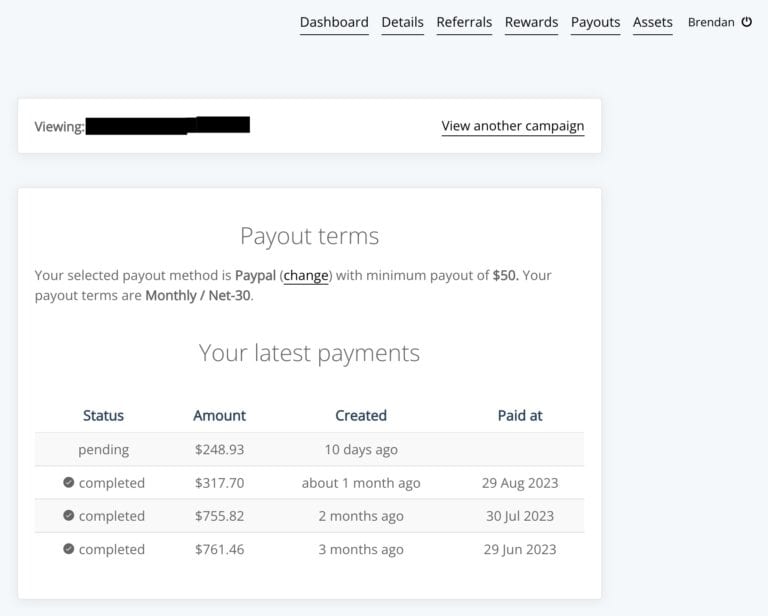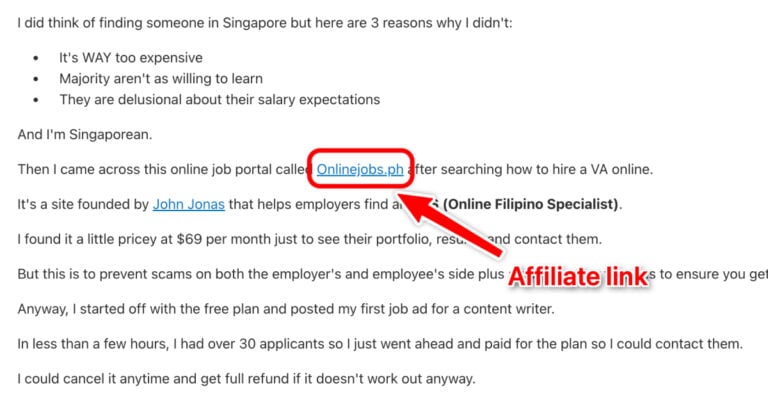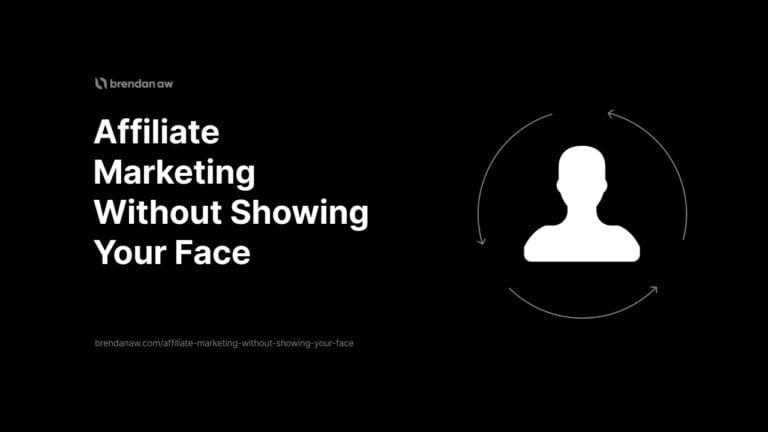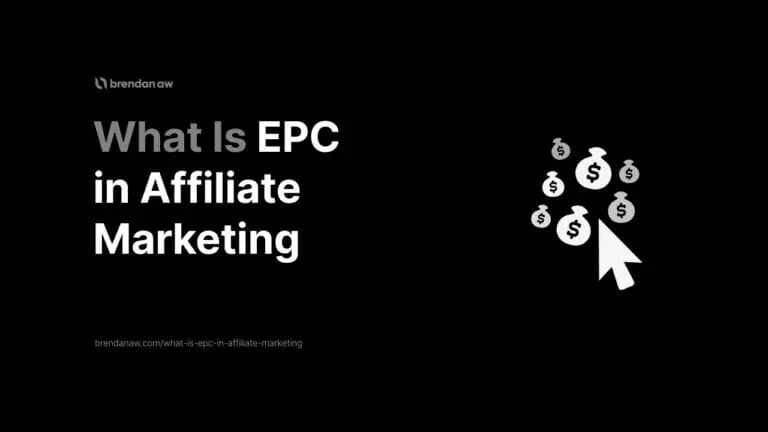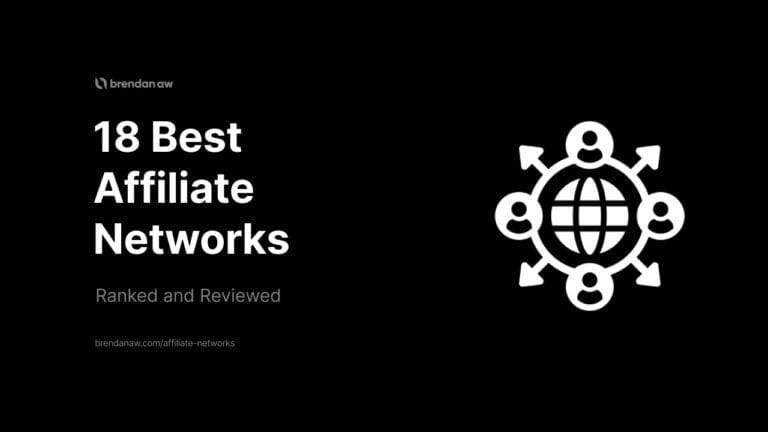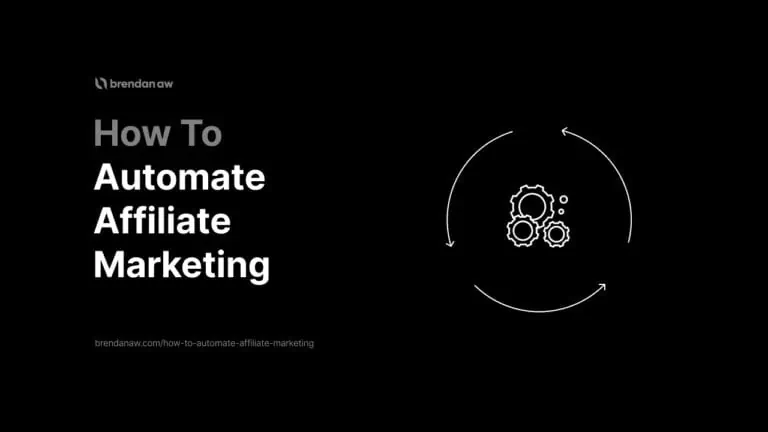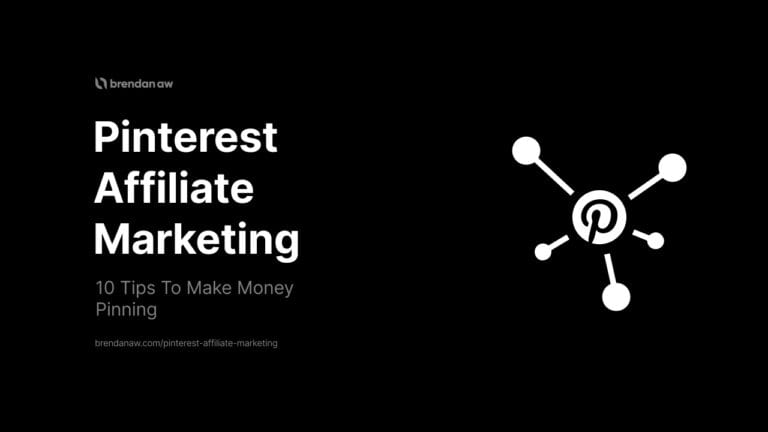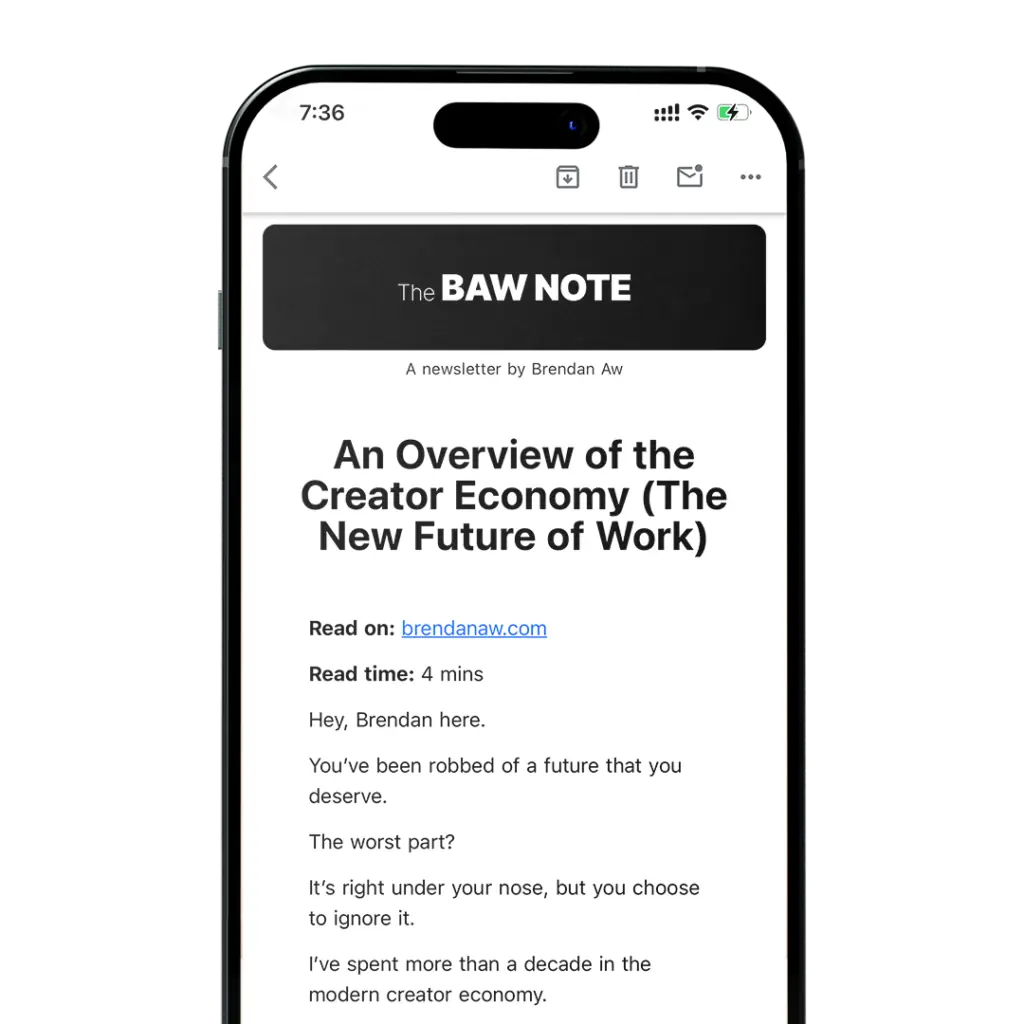Social media is NOT the end-all, be-all of affiliate marketing.
Sure, it is a powerful tool…
You can boost your promotions through all kinds of engagement:
- Likes
- Shares
- Comments
- Memes
- Hashtags
- You name it
But believe me…
You can still succeed in affiliate marketing without followers.
Let me share with you how to use non-social media methods so you can earn commissions ASAP.
First, here are the pros and cons of affiliate marketing without social media to help you weigh your options.
Pros of Affiliate Marketing Without Social Media
Did you know that over 60% of affiliates promote their offers through non-social media channels?
Here are the benefits of affiliate marketing without social media.
Evergreen Content
Evergreen content is more common in non-social media marketing methods.
This content remains relevant and valuable to your audience even after years of publishing…
The best part?
They drive continuous traffic to your affiliate products.
Meanwhile… social media posts are quickly buried in users’ feeds or deleted.
Social media is all about temporary clout.
For example…
X (Formerly Twitter) and Facebook posts tend to get viral quickly… but there’s no longevity.
Objective Metrics
Likes, comments, and shares make the social media world go round…
But these are vanity metrics that don’t readily translate to affiliate earnings.
Creating content out of social media lets you focus on objective metrics like:
- organic traffic
- click-through rates
- and conversion rates
These paint a clearer picture of how your content performs.
You can quickly pinpoint which strategies draw in traffic and conversions…
And refine the lesser-performing ones for better results.
Higher Conversions
Not many people log on to social media with the intent to purchase.
We go there to interact with our friends, share entertaining posts, and call it a day.
If you want to buy something…
You would look products up on Google and review sites instead.
SEO and website traffic are warmer leads comprising a more curious audience…
The opposite of social media users who just happened to come across your viral post.
Cons of Affiliate Marketing Without Social Media
Affiliate marketing without social media offers unique advantages, but it’s not without cons.
Here are some of its potential downsides:
High Costs
Organic traffic from websites isn’t exactly free.
Building a website alone can cost thousands of dollars.
Maintaining it can cost just as much.
Assuming you hire someone to do it.
Even if you do it for yourself…
It’s not free.
Not to mention the effort you put into optimizing your content for search engines.
Meanwhile… Anyone can create a social media account and start posting content right away.
For FREE.
Limited Reach
Another disadvantage of non-social media affiliate marketing is not reaching a vast and diverse audience.
Social media platforms have billions of active users worldwide you can connect with.
Blogs, email campaigns, and webinars can take you far…
But you may miss out on a huge part of your target market if you leave social media untapped.
Especially when the majority of the planet’s population is on it.
Lack of Engagement
Social media is designed for engagement and community building.
While blog posts and most email campaigns are impersonal…
People trust people.
Not faceless avatars.
Nothing beats actively engaging with your audience to earn their trust and get them to buy your affiliate offers.
Best Ways To Do Affiliate Marketing Without Social Media
No social media?
No problem.
You can still be a successful affiliate without one.
Here’s my list of the most effective methods to start affiliate marketing without a social media following:
1. Start a Blog
I’ll be the first to admit…
Starting a blog or website takes time and a lot of work — we’re talking months, even years.
But… The payoff is well worth it.
Here’s a peek at one of my affiliate dashboards.
An affiliate website gives you:
- Full control over your content and marketing efforts
- Credibility
- Long-term ROI from evergreen content
- A valuable asset that you can sell for a huge sum
The key to success here is search-engine-optimized content…
Specifically product reviews, product roundups, and how-to guides.
How do you maximize website/blog profit using SEO?
- Research keywords: Use tools like Google AdWords Keyword Planner or Ahrefs to find high-ranking keywords in your affiliate marketing niche. These are topics people are searching for.
- Use the right tools: Use a reliable host and flexible website builder for affiliate marketing.
- Write good content: Be informative rather than salesy. Provide value… Commissions don’t come unless people trust you and benefit from your content.
- Optimize for SEO: Incorporate high-performing keywords in the title, meta description, and headings to optimize your content.
- Insert affiliate links: Promote affiliate links strategically throughout your content. Write compelling CTAs that seamlessly mention them. DO NOT OVERSTUFF your content with links in every paragraph.
2. Build an Email List
Email marketing or starting a newsletter can be a more direct way to sell to your audience.
This highly targeted approach remains one of the most effective affiliate marketing methods that generates an insanely high ROI.
But you need to build that email list first…
How?
- A traffic source to reach your audience (e.g. website)
- A landing page with a lead magnet (e.g. e-books and freebies) and an email opt-in form
- An email marketing software like Mailchimp to collect and segment email addresses and manage campaigns
- An email autoresponder to send automated replies every time a lead takes a predefined action in your funnel
I recommend starting with four to five emails per campaign with reasonable intervals — one for each stage of the affiliate marketing funnel.
Don’t send more than two emails a week.
You can embed your affiliate links directly in your emails or take your leads to a landing page that offers more value and additional information about your affiliate offer.
3. Start an Automated YouTube Channel
Isn’t YouTube a social media platform?
Well, yes. But…
It’s also a search engine.
The second largest, just behind Google.
Over 122 million people visit the platform daily, totaling over one billion watch hours.
You don’t need to be an “influencer” or show your face to build an audience.
You can start a YouTube automation channel and create videos composed of slideshows, stock media, and animation.
Some of the most successful YouTube channels are faceless channels, like:
- Bright Side (energetic content): 44.5 million subscribers
- FailArmy (funny videos): 16.6 million subscribers
- Economics Explained (education): 2.3 million subscribers
You don’t need to create videos from scratch, either.
Many AI video generators can assemble attractive videos for you with human-sounding voiceovers.
All you need to do is feed it a script.
But you can’t take shortcuts with the actual content of your videos…
Every second must offer value to turn viewers into paying customers.
You also need to optimize your content for the algorithm gods.
Include your keywords in the:
- Title
- Description
- Tags
- Subtitles (If any)
And insert your affiliate links in the video description and make bank.
4. Use Paid Ads
Why spend so much time building a traffic source when you can get it instantly?
This is where paid advertisements come in handy.
You can get warm leads and earn affiliate commissions with one click on a well-placed ad.
That is… Until you stop paying.
Paid strategies always come with financial risks.
Some media buyers become so successful that their business model revolves entirely around paid ads…
While others are not as lucky, losing hundreds (if not thousands) of dollars in a campaign.
You need the right affiliate product to make your ad campaign profitable and vice versa.
Look at it this way:
- Average cost of PPC ads: $2 to $4
- Average conversion rate: 3%
That’s one sale for every 30 clicks, costing you $60 to $120.
Here’s how you can maximize profit from paid ads:
- Find a high-ticket affiliate offer: Your commission per sale needs to be higher than your ad spend. Find products that cost at least a few hundred bucks — ideally with a high commission rate to further pad your earnings per click (EPC).
- Create a landing page: This will serve as a bridge between your ad and the product page. You might also need to take your leads through a longer marketing funnel, depending on the nature of your affiliate offer.
- Use the right platform: Google is the largest platform for PPC ads. It allows you to advertise not only on Google.com but on millions of other websites.
- Engage in A/B testing: Test out a handful of ads with different types of copy and visuals so you can refine your strategy and put your money only into well-performing ads.
Tips for Affiliate Marketing Without Social Media
You can be a successful affiliate marketer without having a single social media follower.
Here’s how:
- Invest in the right tools: Nothing worth having comes easy… Or free. It’s possible to get started with affiliate marketing with free resources, but you will need premium tools to build a scalable business.
- Be patient: It takes time to build an engaged audience. You must create consistent, high-quality affiliate marketing content that will yield long-term results. And not one-hit wonders that everyone will forget about in two days.
- Recommend, don’t sell: I know that the point of affiliate marketing is to sell products… But the days of hard selling are over. People don’t buy because you tell them to. They buy because they trust you and see your offers’ value.
Affiliate Marketing Without Social Media (FAQs)
Can I Become an Amazon Affiliate Without Social Media Followers?
Yes. Having a social media platform isn’t required for affiliate marketing.
There are many other ways to promote your affiliate links, like:
• Blogging
• Email marketing
• Paid ads
You can also buy paid ads on Google and social media platforms to tap into their user base without building a following.
How Many Followers Do I Need To Become an Affiliate?
Most programs don’t require their affiliates to have a substantial following, while others do.
This number varies per affiliate program.
If you want to use social media as your main traffic source for affiliate marketing…
You may need around 5,000 to 15,000 followers to make your platform profitable.
Can I Do Affiliate Marketing Without a Blog?
Yes. You don’t need a blog or website for affiliate marketing.
You can start affiliate marketing by using other marketing methods like:
• Social media
• Paid ads
• Email marketing
• Online forums
• Newsletters
Does Affiliate Marketing Require an Audience?
Yes. You need people to click on your affiliate links and buy your affiliate products but they don’t need to be followers.
You can build an audience through organic or paid traffic or leverage an already existing audience such as:
• Email lists
• Guest posting on established websites
• Engaging with popular social media accounts
Can I Build a Personal Brand as an Affiliate Without Social Media?
Yes. It’s possible to build your personal brand without an active social media account.
Focus on:
• Creating high-quality content
• Providing value to your audience
• Establishing yourself as an authority in your niche through other channels
To Sum Up
It’s true that over half of the population is on social media.
But…
That means the other half isn’t…
And they can be paying customers, too.
Being successful with affiliate marketing without relying on social media requires adapting.
All you need is:
- A traffic source
- Affiliate links
- Great content
I hope this guide helps!


